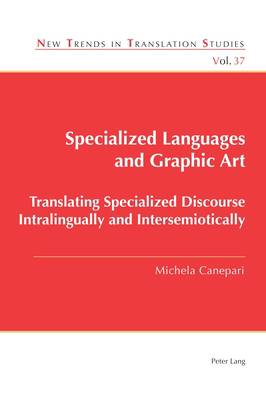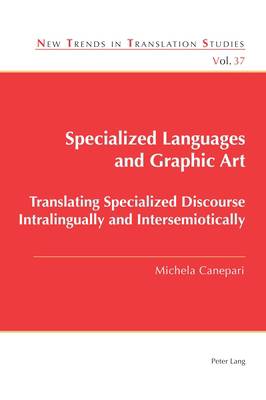
- Retrait gratuit dans votre magasin Club
- 7.000.000 titres dans notre catalogue
- Payer en toute sécurité
- Toujours un magasin près de chez vous
- Retrait gratuit dans votre magasin Club
- 7.000.0000 titres dans notre catalogue
- Payer en toute sécurité
- Toujours un magasin près de chez vous
Specialized Languages and Graphic Art
Translating Specialized Discourse Intralingually and Intersemiotically
Michela CanepariDescription
This book addresses specialized translation, focusing on the forms of translation with the potential to make specialized languages more comprehensible and accessible, namely intralingual and intersemiotic translation. The book offers strategies to assist both readers and translators in approaching specialized languages not only from a professional or academic perspective but also from a practical one, encouraging and promoting a new approach to facilitating their understanding of specialized languages. In so doing, it demonstrates how the exploitation of graphic texts (whether static or animated) represents an invaluable instrument on both a pedagogical and social level. Graphic communication is shown to assist in the drafting of various types of specialized documents to make them more accessible to the general public, thus proposing that graphic art might represent a more unbiased approach to specialized languages and, as a result, contribute to a more egalitarian distribution of knowledge.
Spécifications
Parties prenantes
- Auteur(s) :
- Editeur:
Contenu
- Nombre de pages :
- 264
- Langue:
- Anglais
- Collection :
- Tome:
- n° 37
Caractéristiques
- EAN:
- 9781800798588
- Date de parution :
- 13-10-23
- Format:
- Livre broché
- Format numérique:
- Trade paperback (VS)
- Dimensions :
- 152 mm x 229 mm
- Poids :
- 385 g

Les avis
Nous publions uniquement les avis qui respectent les conditions requises. Consultez nos conditions pour les avis.






